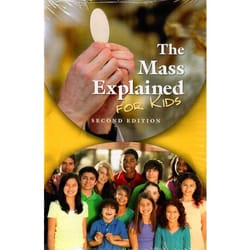Last night I answered one last question about eternal salvation with a real quick “Yes.” Under my breath I promised my stricken sidekick, who no doubt cringed to see me treat the subject so briefly, “We’ll cover ‘perfect contrition’ next week.”
We needed to keep moving with the class. “Yes” was an accurate answer; Perfect Contrition was the detailed version. We will cover it. I assure you. Do not think, dear junior theologian, that I would for a moment water down the faith. No way no how.
***
Very late at night, I remembered where it was I learned those words: Perfect Contrition.
I was 17, kind of Catholic, and way behind on sacraments. This beleaguered pair of faithful, practicing Catholics was tasked with the job of turning slackers like me into confirmandi. Fast. We met once a week in a small group, and they walked us through the most essential essentials of the Catholic faith. What do you do if you are bleeding to death by the side of the road and you are guilty of a mortal sin? Perfect Contrition. [If I recall correctly, they brought motorcycles into it somehow. Fit the audience. Totally.]
I can’t remember the name of the couple who taught me those words; I do remember their daughter was my friend (she went to a different school), and that she gave me a rosary for my confirmation, because I’d never had one and I’d told her how much I wanted one.
It eventually broke from excessive use, but that was later. Also, I went to college and left the Church.
***
The parable of the sower popped up this week. Several years ago my pastor helped me greatly (and presumably everyone else who heard his homily), by pointing out the gardening solution to the problem: Compost. If the soil isn’t so great, keep working on it.
There’s something else, though, that Perfect Contrition brought to mind: Weeds. And wanted plants that act just like ’em.
Have you ever completely given up on a plant . . . determined it was dead and gone, and never to be seen again . . . and then it pops up one summer when you’d given up all hope? That’s weediness. The ability of one lone seed to sit hidden in the ground for years, and then when the time is right, it shoots up and takes over.
That’s what those words, Perfect Contrition, were to me. That little good-weed seed.
***
Catechists, don’t lose heart when everything you say seems to get lost. When you watch a student who was once so eager to learn about God suddenly grow up and move out and completely walk away from the Catholic faith. It wasn’t that you did nothing. It wasn’t that all your work was a failure.
The human heart is not some tiny little square of the garden, stuck with its rocks and thorns. It is a vast and varied territory. What you teach becomes these tiny grains of faith that spread everywhere into your students’ souls. There’s good ground somewhere in that garden. Somewhere in a corner you didn’t even see, didn’t even realize your words had reached.
And twenty years later, your very words — words like Perfect Contrition — come sprouting out of a mouth you’d had every reason to assume was a lost cause. And they come out, and your long-ago student who can’t even remember your name, who might have once even said, “I didn’t learn anything in religious ed,” your student knows exactly where that seed came from, and who it was who cooperated with the grace of God to put it there.
***
Also, God knows. And He does not lose track. Not ever.







